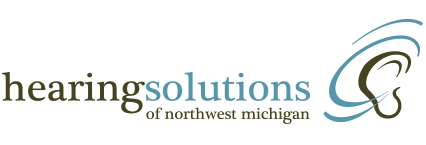Once your new hearing aids arrive, you’ll return to Hearing Solutions of Northwest Michigan for your fitting appointment. This will be the longest appointment you have at our offices as the audiologist adjusts your hearing aids to your preferences and instruct you on the care of your new devices. We encourage you to bring a friend or family member with you to this appointment.
What to Expect During Hearing Aid Fitting
During the hearing aid fitting appointment, the audiologist will confirm that your in-ear hearing aids or earmolds fit comfortably. If you ordered behind-the-ear (BTE) hearing aids, they also check the length of the tube and adjust if necessary.
Because no two people hear sound the same way, the audiologist will confirm that your hearing aid programs and settings are delivering sound as you want to hear it. Your hearing aids will be adjusted until you hear sound comfortably.
Real Ear Measurements
The audiologists at Hearing Solutions of Northwest Michigan use Real Ear Measurements to verify your hearing aids are programmed for your specific needs. During the Real Ear Measurements process, the audiologist will place small microphones in the ear canal and measure the response of the hearing aids to sound. It’s recommended to bring a family member or friend to the appointment for familiar voice testing during the Real Ear Measurements.
Real Ear Measurements have been shown to increase patient satisfaction with their hearing aids and reduce the need for further adjustment visits.
Wearing Hearing Aids for the First Time
The first time you put hearing aids on, sounds may seem off at first. Don’t be surprised if your own voice sounds a bit different as well. Today’s open-fit hearing aids reduce occlusion, but your own voice may sound a bit hollow, and you may be more aware of the sound of your own chewing and swallowing.
Don’t worry, you’ll adjust to the difference and soon won’t notice it at all.
Adjusting to Wearing Hearing Aids
If you wear glasses, you know that your eyes and brain need a brief amount of time to adjust to a new prescription. Wearing hearing aids requires a similar brief adjustment period. As you lose your hearing, the brain becomes accustomed to less auditory input. When auditory stimulation returns to normal levels, you may feel tired or overwhelmed by noise.
The audiologist will suggest a plan for adjusting to wearing hearings aids. In a week or so, you’ll return for a follow-up appointment to check on your progress.
